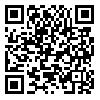BibTeX | RIS | EndNote | Medlars | ProCite | Reference Manager | RefWorks
Send citation to:
URL: http://ajnpp.umsha.ac.ir/article-1-513-en.html
2- Department of Psychology, Roudehen Branch, Islamic Azad University, Roudehen, Iran ,
Background and Objective: The present study investigated the effectiveness of acceptance and commitment therapy (ACT) on self-efficacy in coping with cancer in leukemia patients.
Materials and Methods: The research was a quasi-experimental study following a pretest-posttest-follow-up design with a control group. For this purpose, 30 leukemia outpatients in the Chemotherapy Clinic of Shahid Rajaee Hospital of Karaj (Iran) in 2024 were selected by convenience sampling and randomly assigned to two experimental and control groups, each with 15 patients. The subjects completed Cancer Behavior Inventory (CBI) before and after the intervention. The intervention included eight 90-minute ACT sessions and targeted only the experimental group. The data were analyzed using a multivariate analysis of covariance (MANCOVA) and repeated measures analysis of variance (ANCOVA) run using the SPSS (version 26) software.
Results: The findings revealed significant differences in the scores of CBI and its subscales, i.e., maintaining activity and independence, coping with treatment-related side effects, accepting cancer, seeking and understanding medical information, regulating effect, seeking support, and stress management between the experimental and control groups. Moreover, the treatment effect continued until the follow-up phase (P<0.05).
Conclusions: The findings help us conclude that ACT improves self-efficacy in coping with cancer in leukemia patients and can be employed as an efficient intervention.
Received: 2025/02/13 | Accepted: 2025/04/14 | Published: 2025/05/15
| Rights and permissions | |
 |
This work is licensed under a Creative Commons Attribution-NonCommercial 4.0 International License. |







